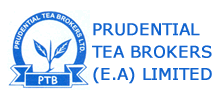THE ROLE OF THE TEA BROKER
The Tea Brokers hold a key position in the value chain within the trade. In this information age, they sit at the confluence of multiple streams of data, creating value for the teas that they handle, and based on subjective factors as quality, supply and demand and prevailing market environments.
Tea Brokers operate under the auspices of the East Africa Tea Trade Association (EATTA) which is a voluntary, non-profit umbrella body representing the interests of the tea industry in Africa.
EATTA is the auction organizer that runs the weekly Mombasa Tea Auctions and is guided by clear rules and regulations that are under periodic consultative review. The Tea Brokers hold a key position in the value chain within the trade. In this information age, they sit at the confluence of multiple streams of data, creating value for the teas that they handle, and based on subjective factors as quality, supply and demand and prevailing market environments.





